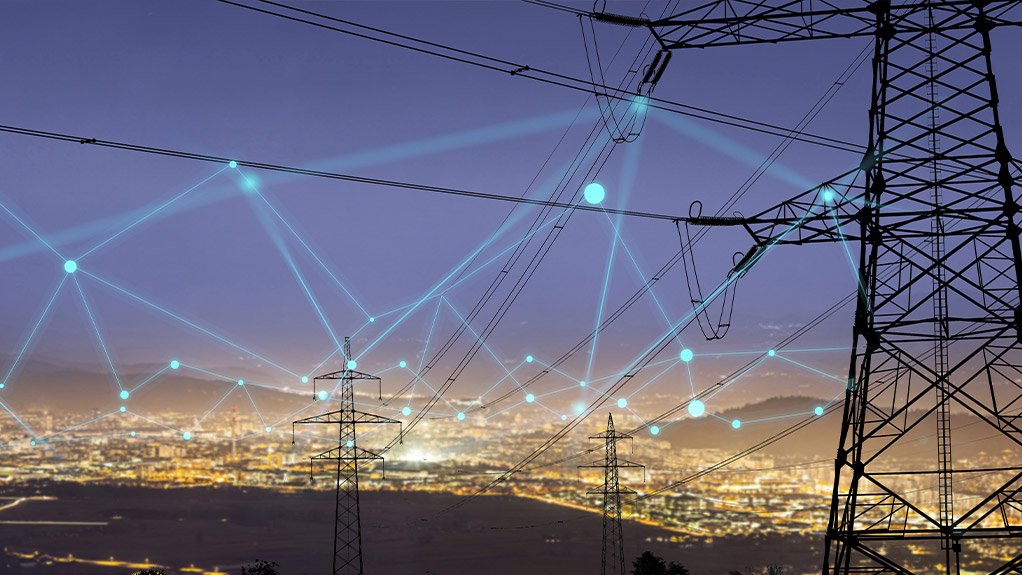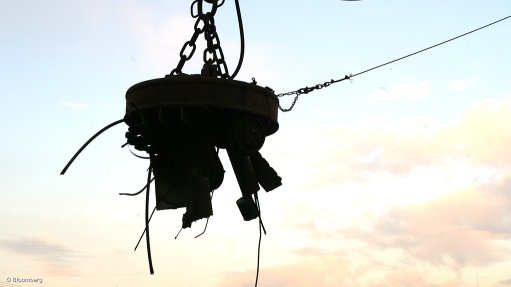Smart grid offers benefits for all stakeholders


INTEGRATED TECH Smart grids allow for the integration of new, intermittent power sources and distributed generation
Implementing a smart grid system in South Africa offers a range of benefits for power generators, electric utilities, customers and society, says UP specialist energy industry consultant Dr Willem de Beer.
He adds that a smart grid system can also alleviate many of the challenges municipalities encounter.
The second version of the Strategic National Smart Grid Vision for the South African Electric Supply Industry, launched by energy research institute South African National Energy Development Institute (SANEDI) in March this year, outlines the benefits of implementing a smart grid system, in addition to how it can be achieved, in South Africa.
Developed by SANEDI in collaboration with industry stakeholders such as the University of Pretoria (UP), the strategy aims to guide the transformation of the country’s electricity system into a modern, integrated and intelligent grid with a focus on three key areas – smart asset management, renewable-energy integration and improved revenue enhancement.
According to the strategy, “the transition to a smarter grid entails changes and enhancements to the complete grid value chain”, which range from how electricity utilities operate and how the network is structured to how end-users interact with the grid infrastructure.
UP smart grid research director and Professor Raj Naidoo says for electricity utilities, such as municipalities and State-owned entity Eskom, the smart grid can assist in managing the challenges such as managing asset breakdowns and navigating the energy transition.
Municipalities often have a lack of expertise and maintenance programmes, which leads to many of them developing a reactive approach to asset management.
However, a smart grid system can enable municipalities to have a predictive approach to asset management, he adds.
Smart asset management can create a digital twin of electricity networks that uses advance analytics and machine data to predict machine reliability. This can assist municipalities in ensuring that networks work optimally and predict issues.
Real-time diagnostics then allow municipalities to resolve or address these high-priority areas to ensure continuity of supply and eliminate prolonged power outages, owing to breakdowns.
The Asset Cloud platform, developed by UP and SANEDI, offers a variety of benefits for municipalities who are just at the beginning stages of developing asset management practices and who want to better understand their readiness to embark on the asset management journey, explains Naidoo.
Integrated Power
The goal of NetZero by 2030 – accompanied by the introduction of renewable energy, independent power producers (IPPs), distributed energy resources and battery energy storage systems – requires a grid that can deploy and support these advancements.
The strategy puts forward that the smart grid will allow for the integration of new, intermittent power sources and distributed generation, consequently contributing to diversity and capacity development, in addition to offering greater sustainability benefits.
This is particularly significant as more businesses integrate renewable power sources into their organisations.
The smart grid will also encourage more IPPs to stay connected to the grid, as it presents the opportunities to buy and sell customer-owned generation and storage resources in the market.
Naidoo says although there have been successful examples of smart grid systems in South Africa, these have been on a small scale and limited to operations such as mines and manufacturers.
Leveraging Tech
De Beer notes that municipalities need to have technology to leverage the opportunity of bidirectional energy flow.
He explains that grid management capability and the ability to ensure network stability is also crucial, with some municipalities better positioned to do so than others.
However, he explains that municipalities can work towards these capabilities to ensure that all municipalities can eventually support bidirectional energy flow and leverage new business opportunities.
Integrating as much energy from customer-owned generation as possible contributes to lower costs, addressing energy availability and ensuring a more efficient and effective system.
“It will require a greater investment from a technology perspective, but if you want customers to stay connected to the grid and be sustainable from a utility perspective, it is essential that import into the grid of all alternative energy sources be facilitated. That is how I see the future,” says De Beer.
Added Value
For customers, Naidoo says, smart grid technologies provide more reliable services, such as fewer power interruptions, a shorter time to restore functionality, and improved power quality to electrical and electronic appliances.
Further, real-time energy management and optimisation capabilities can result in potential bill savings, as well as managing electricity in a more economical and environment-conscious way.
De Beer adds that incentives – such as offering Internet and telecommunications access to all electricity customers to encourage bill settlements and discourage electricity theft – can also be introduced.
Currently, municipalities are owed a high debt. A lack of financial literacy, poor billing systems and an inability to pay, owing to poverty or unemployment, are contributors to outstanding payments.
Naidoo notes that smart metering systems ensure transparency and accuracy that, in turn, can have a significant impact on reducing electricity theft and inaccurate meter readings.
Further, such systems ensure the early detection of meter tampering, which would make it more difficult for consumers to steal electricity.
De Beer concludes that South Africa has the tools and knowledge to facilitate the journey to a smart grid system and to unlock its advantages; it now requires “aggressive implementation”.
Article Enquiry
Email Article
Save Article
Feedback
To advertise email advertising@creamermedia.co.za or click here
Press Office
Announcements
What's On
Subscribe to improve your user experience...
Option 1 (equivalent of R125 a month):
Receive a weekly copy of Creamer Media's Engineering News & Mining Weekly magazine
(print copy for those in South Africa and e-magazine for those outside of South Africa)
Receive daily email newsletters
Access to full search results
Access archive of magazine back copies
Access to Projects in Progress
Access to ONE Research Report of your choice in PDF format
Option 2 (equivalent of R375 a month):
All benefits from Option 1
PLUS
Access to Creamer Media's Research Channel Africa for ALL Research Reports, in PDF format, on various industrial and mining sectors
including Electricity; Water; Energy Transition; Hydrogen; Roads, Rail and Ports; Coal; Gold; Platinum; Battery Metals; etc.
Already a subscriber?
Forgotten your password?
Receive weekly copy of Creamer Media's Engineering News & Mining Weekly magazine (print copy for those in South Africa and e-magazine for those outside of South Africa)
➕
Recieve daily email newsletters
➕
Access to full search results
➕
Access archive of magazine back copies
➕
Access to Projects in Progress
➕
Access to ONE Research Report of your choice in PDF format
RESEARCH CHANNEL AFRICA
R4500 (equivalent of R375 a month)
SUBSCRIBEAll benefits from Option 1
➕
Access to Creamer Media's Research Channel Africa for ALL Research Reports on various industrial and mining sectors, in PDF format, including on:
Electricity
➕
Water
➕
Energy Transition
➕
Hydrogen
➕
Roads, Rail and Ports
➕
Coal
➕
Gold
➕
Platinum
➕
Battery Metals
➕
etc.
Receive all benefits from Option 1 or Option 2 delivered to numerous people at your company
➕
Multiple User names and Passwords for simultaneous log-ins
➕
Intranet integration access to all in your organisation


















